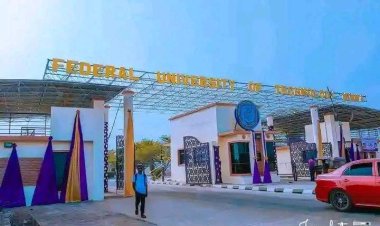ASUP Raises Alarm Over Existential Threat to Nigerian Polytechnics
Ezeibe pointed out that federal polytechnics in the country have been operating without the full complement of their governance structures since June 2023, following the dissolution of the governing councils by the government. This has affected the smooth running of the institutions and the appointment of qualified principal officers.

The Academic Staff Union of Polytechnics (ASUP) has expressed dissatisfaction with the state of polytechnic education in Nigeria, citing issues of governance, government policies, and staff welfare as major challenges facing the sector. ASUP's national president, Anderson Ezeibe, briefed journalists in Abuja ahead of the union’s 17th biennial national delegates conference, highlighting that these challenges pose a threat to the continued existence of improved polytechnics education in Nigeria.

Ezeibe pointed out that federal polytechnics in the country have been operating without the full complement of their governance structures since June 2023, following the dissolution of the governing councils by the government. This has affected the smooth running of the institutions and the appointment of qualified principal officers.
READ ALSO: 42 Adekunle Ajasin University Students Achieve First Class Honors in 12th Convocation
Additionally, Ezeibe accused the government of retaining five persons who are unfit and unqualified to be appointed as rectors in five new federal polytechnics, despite a court ruling that nullified their appointments. He stated that this was a deliberate attempt by the government to undermine the proper administration of the affected polytechnics.
Although the polytechnics lecturers welcomed the decision of the government to include the establishment of a National Commission for Polytechnics in the Roadmap for the Education Sector 2024 – 2027, they expressed hope for its effective implementation. They also welcomed the decision to grant degree-awarding status to polytechnics, considering it the surest way to end the persistent HND/Degree dichotomy that has plagued the sector for years.





